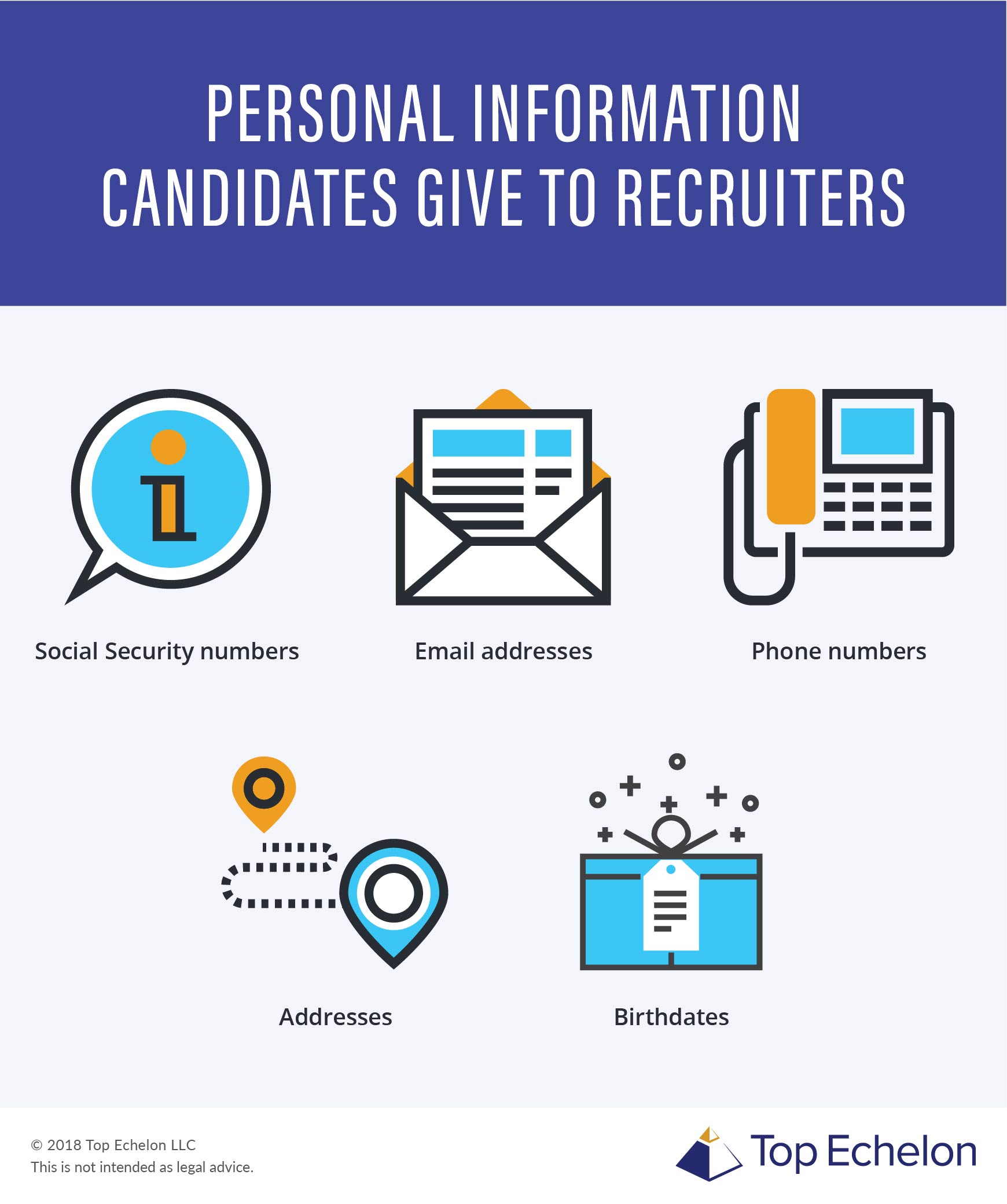Confidentiality is a crucial component of the hiring process. As a recruiter, it’s your job to gather candidate information through forms and interviews. If hired, this personal information becomes part of a candidate’s secure file. Why is candidate and employee confidentiality so important in recruitment?
Why is employee confidentiality important?
Employee confidentiality extends to protecting candidates’ information to preserve the integrity of your recruiting process. Throughout the process, you will discover and discuss confidential information with candidates.
Having employee confidentiality helps build and develop trust between the recruiter and candidate. As their recruiter, candidates should be confident in providing you with their personal information.
You are responsible for gathering and researching candidate information. Only share the information relating to the candidate with your client and any applicable members of their hiring staff. If you are working with another recruiter in a split placement, you can also share the candidate’s information with them.
Employee confidentiality in contract staffing
As a recruiter, you have the responsibility of protecting workers’ information in contract staffing along with candidate information.
Similar to keeping candidate information safe, you also need to take the same measures to protect contract staffing information. Workers’ information—such as names, addresses, Social Security Numbers, or Tax Identification Numbers (TINs)—is considered confidential.
Be sure to store workers’ personal files and information in secure software, database, or other filing system.
Employee confidentiality laws
There are data protection laws in place to protect an employee’s personal information.
The Privacy Act of 1974 controls how government agencies handle personally identifiable information (PII). PII is any data that could potentially identify an individual, including Social Security numbers, names, and addresses.
All 50 states and D.C. have a law in place requiring private or government agencies to notify candidates or employees of security breaches of PII information.
Check with your state for specific employee confidentiality laws to follow. Consider reviewing these laws with the candidate to discuss how their information is protected.
Keeping candidate and employee information confidential
Recruiters and clients have the responsibility of keeping candidate information confidential after the recruitment process is over.
You likely will need to protect candidate information such as personal information, medical information, and other candidate records. To protect a candidate’s personal information, consider using the following security measures.
Along with protecting candidate information, keep the employee information of your contract staffers safe, too.
Recruiting software
Utilize a recruiting software to keep candidates’ information private. Recruiting software allows you to store candidates’ records without worrying about a data breach. And, it helps you keep your client’s information private.
With recruiting software, you can store all of your candidate and client information in one place for easy access and safe-keeping.
Strong passwords
Securing personal information begins with using strong passwords. The more complex your passwords are, the better. Instead of using the same password for everything or a variation of passwords, have a unique password with multiple numbers, symbols, and letters.
Consider using passwords to protect documents, such as candidate forms that include personal information. The password provides an extra layer of protection to secure candidate or employee information.
Secure networks
Network security is crucial inside and outside the office. Always make sure your system is secure when accessing sensitive candidate files or information. Use a firewall, password protect your network, and consider the use of a virtual private network (VPN) to keep data secure.
Awareness
Cybersecurity should be a top priority when handling sensitive candidate information. Hackers create new and innovative threats every day. Learn more about popular cyber threats and how to avoid them.
If you receive an email asking you to click on a suspicious link or provide private information about a candidate, do not click on it. Report the threat and delete the email.









